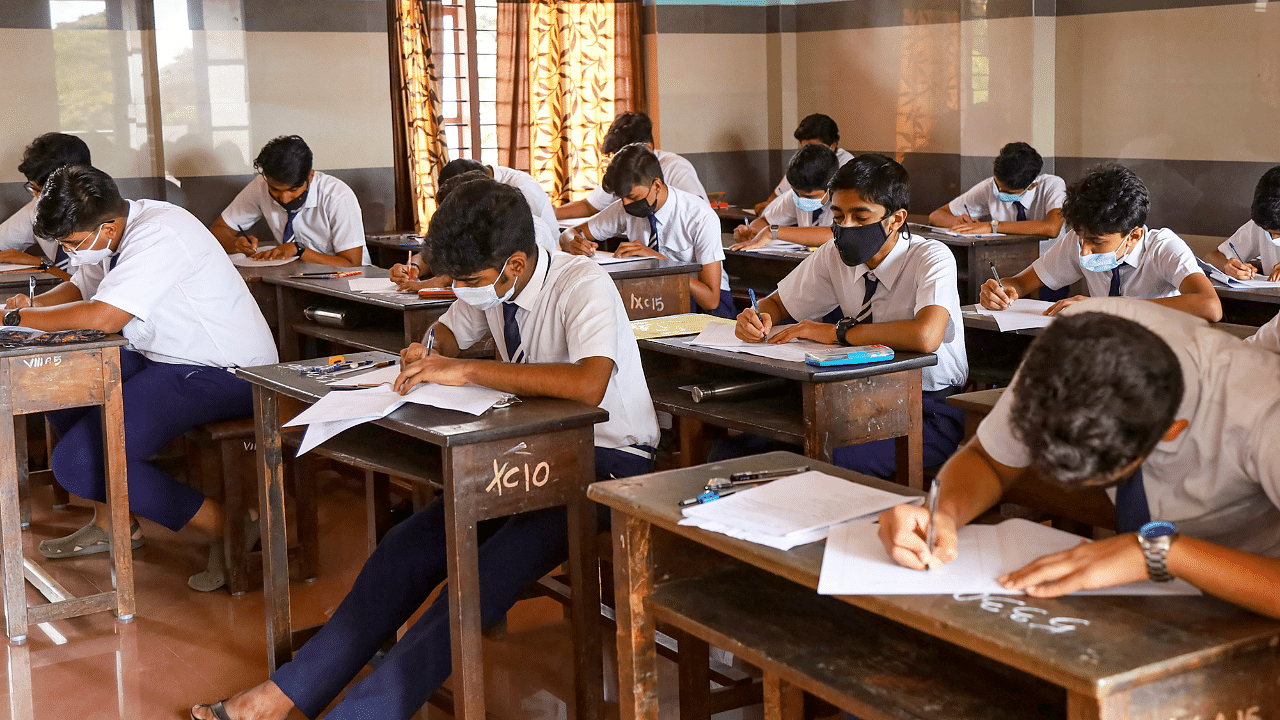
Representative image of students writing an exam.
Credit: PTI Photo
At a time when educational institutions worldwide are trying to simplify learning and evaluation processes, the Karnataka government has taken a regressive step by introducing board examinations for students across various grades. This decision contradicts the global trend of embracing holistic and flexible assessment methods that focus on student well-being and comprehensive learning. The Supreme Court’s recent stay on the half-yearly board examinations for classes 8 to 10 highlights the need for the government to reassess its approach towards education. The court has rightly questioned the rationale behind introducing a system that is not followed by any other state or board. “If you are really concerned about the welfare of students, then please open good schools; do not throttle them,” the court observed.
The government argues that board exams will ensure accountability among students, teachers and schools, provide standardised measures of student performance, and prepare students for high-stakes exams in the future. However, centralised examinations have been criticised for their detrimental impact on students’ mental health and have often failed to improve educational outcomes. The negative consequences include emotional stress, a narrowed focus on test results that stifles exploration and deep learning, and an assessment approach that is limited to rote memorisation and recall, and fails to foster creative thinking or problem-solving skills.
The Right to Education Act (RTE), 2009, mandates continuous and comprehensive evaluation (CCE) to assess students based on their individual learning abilities and progress within their school environments. Key principles of CCE include regular evaluations through the academic year, assessment of multiple aspects of learning, and focusing on students’ unique learning abilities. This approach offers numerous benefits, such as tailoring instruction to individual needs, providing regular feedback and guidance, reducing dropout rates, and focussing on both academic and non-academic skills. Conversely, Karnataka’s move to implement board examinations hinders progress towards a more inclusive and progressive education system. There is an urgent need to identify and address long-standing deficiencies in the education system by bridging infrastructure gaps, deploying trained teachers in rural areas, ensuring equitable access to quality education for all, and providing counselling and mentorship opportunities for students. It is crucial to reassess the value of board exams and prioritise the overall development of students over outdated evaluation methods.
The government should adopt international best practices, such as Finland’s flexible curriculum that emphasises student-centred learning without standardised examinations until age 16, or Singapore’s holistic learning that integrates both academic and non-academic learning. It is high time Karnataka recognised that the future of education demands flexibility, creativity and a student-centred approach — not a return to rigid, stressful assessment regimes.